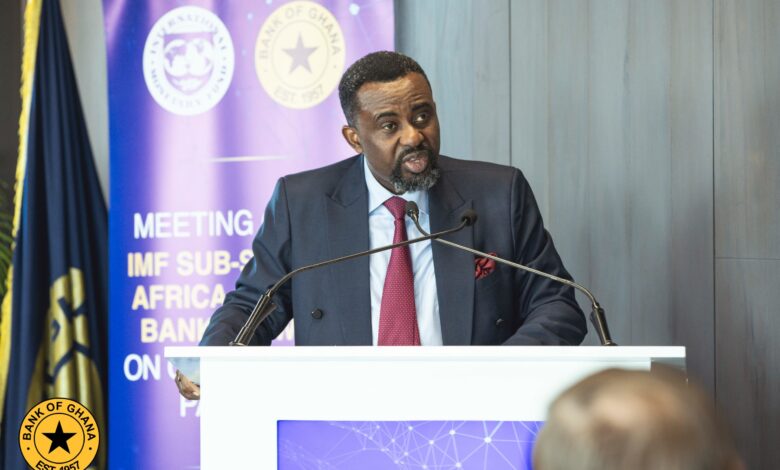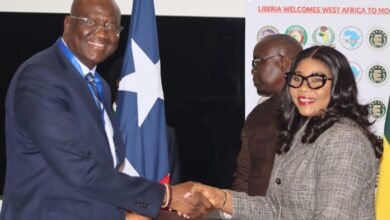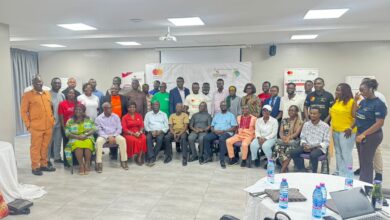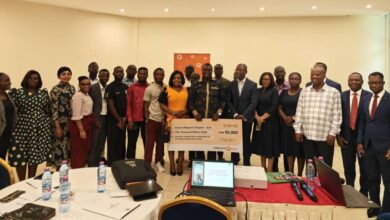Ghana’s Economic Turnaround: A New Chapter of Stability and Opportunity -Dr. Johnson Asiama

At the dawn of 2025, Ghana stood at a defining crossroads. The economy bore the bruises of a turbulent year past—high inflation, a battered currency, and a public skeptical of the promise of change. Investor confidence teetered on the edge, fiscal pressures were mounting, and while the government had begun the journey of consolidation, the road ahead was steep and uncertain.
But as Dr. Johnson Asiama, Governor of the Bank of Ghana, took the podium at the AfDB’s Private Investor Roundtable, the tone was one of cautious optimism—and quiet triumph. “The tide is turning,” he declared.
A Plan Takes Root
Dr. Asiama outlined a story not of coincidence, but of coordinated effort. A renewed macroeconomic stabilization strategy—anchored in restoring stability, rebuilding market confidence, and laying foundations for growth—had begun to bear fruit.
The data tells a compelling story:
Real GDP growth for 2024 hit 5.7%, outperforming projections, driven largely by services and industry. In 2025, Ghana is tracking a healthy 4.0% growth rate.
The Ghana cedi, which had depreciated 19.2% in 2024, has since rebounded strongly—appreciating 21.5% year-to-date.
Inflation has eased to 21.2% in April 2025, down from 23.8% at the end of 2024.
Gross international reserves stand at $10.67 billion, covering 4.7 months of imports.
The first quarter saw a current account surplus of $2.12 billion, boosted by strong gold and cocoa exports.
“These gains are not accidental,” the Governor noted. “They reflect deliberate action.”
At the Bank of Ghana, a tighter monetary policy and more active liquidity management through Open Market Operations have reinforced market signals. Close coordination with the Ministry of Finance ensures that fiscal tightening aligns with the disinflation agenda.
On the fiscal front, the government is walking a disciplined path—deep expenditure cuts, domestic revenue reforms, and meaningful debt management. These are further backed by a recent IMF Staff-Level Agreement and a sovereign credit rating upgrade by S&P from Selective Default to CCC+.
“This is a broad-based reset,” Dr. Asiama said, “and it is rebuilding both institutional and investor trust.”
Confidence as Currency
Dr. Asiama’s keynote was not just a report card—it was a recalibration of how Ghana sees itself in global finance. “In this world, confidence is currency,” he stressed. “And that confidence must be earned—through consistency, transparency, and reform-minded leadership.”
He acknowledged that stabilization was only the beginning. The tougher challenge lies in sustaining that momentum: anchoring investor expectations, mobilizing long-term capital, and ensuring Ghana’s development is financed without derailing macroeconomic gains.
To that end, Ghana is opening its doors to private capital—not passively, but with active intent. The structural reforms now underway in public sector governance, financial intermediation, and investment climate are all designed to create fertile ground for sustainable investment.
“This roundtable is exactly the kind of engagement we need,” he told his audience, “data-driven and reform-oriented.”
Policy with Purpose: The MPC’s Message
One of the strongest signals a central bank can send, according to Dr. Asiama, is consistency. At its latest meeting, the Monetary Policy Committee voted unanimously to maintain the policy rate at 28%. The decision, grounded in discipline, is aimed at consolidating disinflation gains and reinforcing Ghana’s macroeconomic framework.
Inflation is on a downward trajectory, and core inflation metrics are improving. While risks remain—from food supply constraints to global commodity volatility—the policy stance remains forward-looking but cautious.
The Bank has also launched structural reforms in liquidity operations, transitioning from passive tools like the unremunerated Cash Reserve Ratio to more dynamic OMO instruments. This shift enhances monetary transmission, tightens liquidity control, and opens channels for targeted private sector credit expansion.
“In short,” he said, “our policy is disciplined, transparent, and data-driven.”
The Cedi’s Comeback
Few indicators capture the national mood like the performance of the cedi. And this year, it has told a different story—a story of resilience.
“As of May 20, 2025, the cedi is up 21.5%—this is not an illusion,” said Dr. Asiama. “This is real reform, real discipline, and real resilience.”
Several factors have contributed to this turnaround:
Strong export earnings, particularly from gold (trading above $3,200/oz).
The Gold-for-Reserve programme, easing pressure on FX markets.
Rising reserves and a significant current account surplus.
Stable remittance flows, aided by reforms and tech-driven efficiencies.
At the same time, regulatory enforcement has tightened. “Speculative arbitrage and opaque flows are a thing of the past,” the Governor stated. “To those still holding dollars in anticipation of a return to depreciation, I say: the market has changed.”
Ghana’s Investment Proposition: Stability Meets Opportunity
The overarching message was clear: Ghana is ready—not just for recovery, but for investment-driven transformation.
Three compelling reasons stand out:
1. Policy Stability: Ghana’s economic strategy is anchored in realism—monetary discipline, fiscal prudence, and structural reform. This isn’t just IMF compliance—it’s a long-term shift.
2. Strong Fundamentals: With diversified growth, a recovering credit environment, and export expansion, Ghana’s economy is showing resilience.
3. Financial Sector Reforms: Capital buffers are strengthening, digital finance is accelerating, and supervision is tighter—making the system more efficient and inclusive.
Emerging sectors are ripe for partnership:
Green energy and infrastructure aligned with climate goals.
Digital innovation and fintech, showcased at the recent 3i Africa Summit.
Light manufacturing and agribusiness, linked to AfCFTA value chains.
“Investors are not just looking for returns,” he said. “They are looking for governance, stability, and alignment. Ghana offers all three.”
Looking Beyond Borders: Africa’s Financial Future
Dr. Asiama closed with a regional call to action. “The future of African finance isn’t just in capital flows—it’s in how our institutions manage and multiply that capital.”
He called for:
Interoperable payments systems to boost intra-African trade.
Standardized regulations for fintech and investment mobility.
Shared frameworks to manage regional risks.
Under AfCFTA, these efforts will be vital. “Africa’s opportunity is continental,” he said. “And Ghana is ready to lead and to collaborate.”






